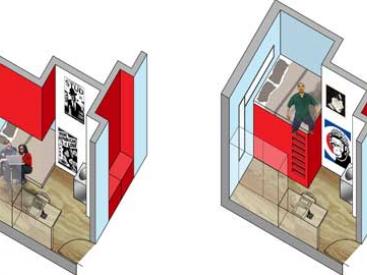A Cooperative Future for Student Housing
- Project date
- 24.01.2005
- Type
-
- Architecture
- Research
- Location
- National
- Clients
- National Union of Students (NUS)
- Associated team members
- Associated documents
This study has been commissioned by the National Union of Students (NUS) in partnership with the student unions of Manchester University, Manchester Metropolitan University and UMIST. This is the first of the two study parts. It seeks to assess whether there is a model for co-operative student housing that can be applied in this country. It looks at the general principles that might be adopted for such a model wherever it is applied in the country, including an analysis of the bricks and mortar issues.
The second part will follow once the project partners have formed a view on some of the key questions that this report has identified such as site, size of development and its nature and probably most importantly how it will be developed. The second part of the study will produce a detailed development feasibility study for a project on a particular site.
This report has been funded by the four commissioning bodies together with substantial grant support from Co-operative Action. Thanks are also due to Co-op Group (Northern Region) for their support.
The report reviews the history of co-operation and how the co-operative housing sector grew. It examines the proven success of housing co-operatives in North America and how the history of tenant management in the UK forms the backbone for a new wave of student housing co-operatives which would learn from the past but look forward to a future of affordable, accountable, community based student housing.
The report sets out the benefit of student involvement in their own housing – reduced rents as shareholder profits are removed from the equation and responsible management reduces cost (as demonstrated in tenant management organisations elsewhere), cohesive communities which meet and share goals and experiences, real management training and personal development of use in students' future careers. The report sets out options for possible multistakeholder arrangements and structures through which students are given as much management responsibility as they feel able to take on and emphasises the importance of accessing training and support.
It is recommended that voluntary tasks for student managers are clearly separated from staff responsibilities, and tasks should be those where on site responsiveness is key and tasks are quick, relatively easy and self contained, containing added benefits for the community without overloading volunteers. The possibility of payments for additional management work over and above what is expected is examined for further discussion.

